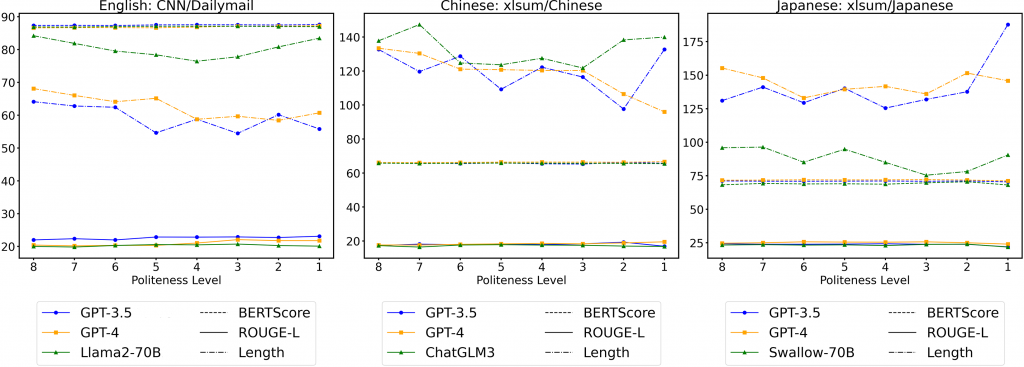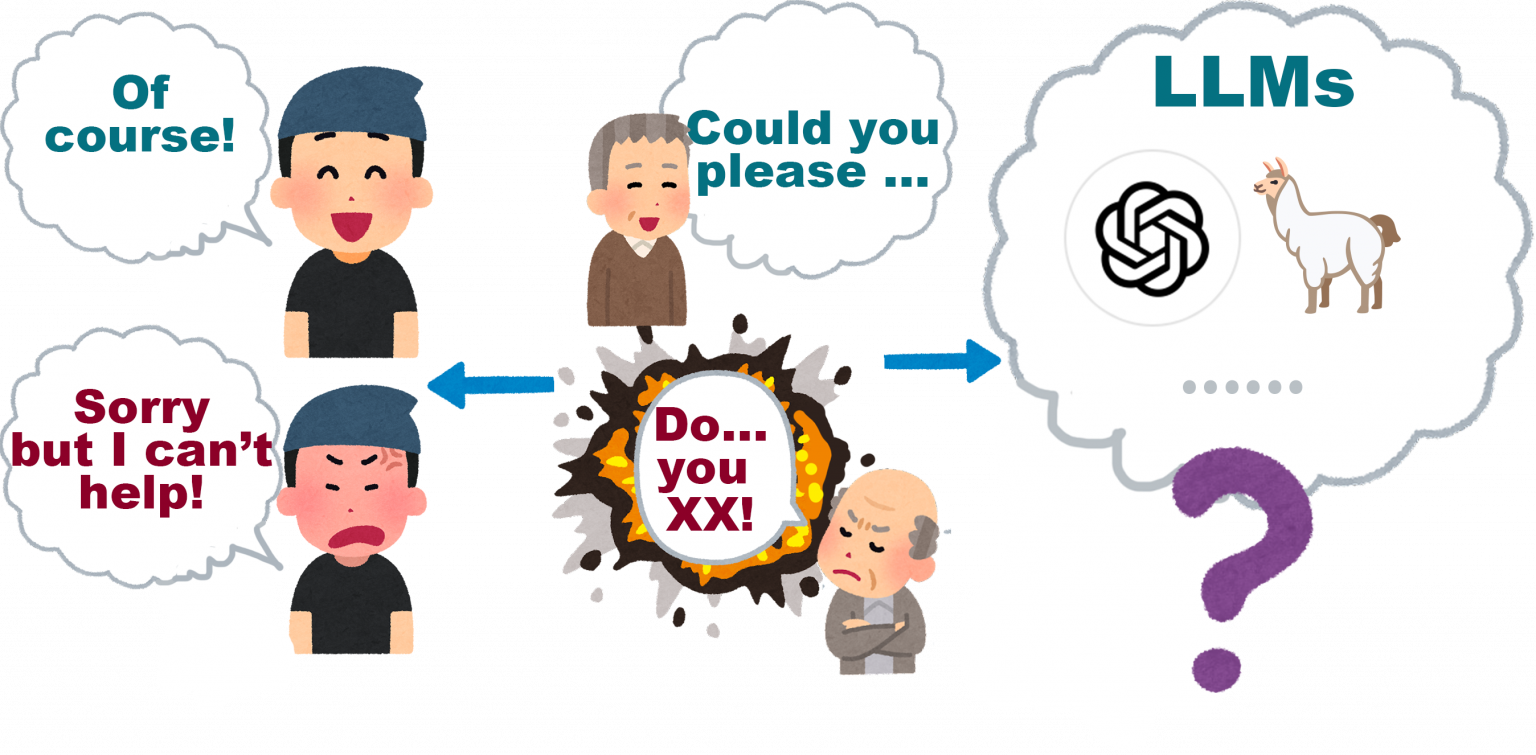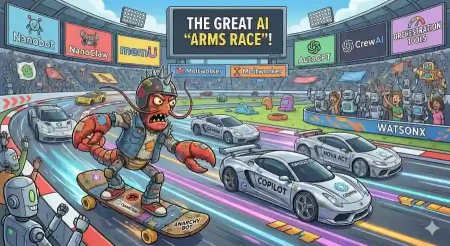Does AI care if you forget to say “please”? Will ChatGPT side-eye you if you skip the “thank you”? Satyen K. Bordoloi gets into the skin of this seemingly silly question that’s secretly shaping how we interact with tech and maybe even the planet.
Three years ago, when ChatGPT stormed into our lives, the internet meme factory went into overdrive. “Be nice to AI today,” memes screamed, “or they’ll punish your rudeness during the robot uprising!” Sure, it was cheeky. But guess what? Scientists actually took it seriously.
Researchers ran experiments and discovered something unthinkable: polite prompts do squeeze better answers out of AI. “Thank yous” and “Pleases” were not just about politeness but effective AI use. Yet, recently, when a Twitter user asked how much OpenAI lost to people being polite, CEO Sam Altman dropped a bombshell: “Tens of millions of dollars.”
Why was Altman’s opinion in opposition to research? Was politeness bankrupting AI companies? Were our manners literally burning cash? The answer, as with anything in the age of Tinder-love, is… complicated. This was the kind of inane, yet somehow one with a deeper mystery than it lets out, that tickled me and I had to get into it. What I found was something simpler and funnier than what I had anticipated.
Why Politeness Works (Even Though AI Has No Feelings): Let’s get one thing straight: AI doesn’t care if you’re rude or polite. It’s a glorified spreadsheet with a thesaurus injected into it. But here’s the kicker—it has been trained on human data. And you and I, and everybody else on the planet: we’re all suckers for politeness, aren’t we?
A study, “Should We Respect LLMs? A Cross-Lingual Study on the Influence of Prompt Politeness on LLM Performance”, aimed to assess “the impact of politeness in prompts on LLMs across English, Chinese, and Japanese tasks.” The researchers crafted prompts in English, Chinese, and Japanese, ranking politeness on an eight-level scale. The results? Pure gold. Impolite prompts spat out answers as reliable as visuals on a damaged mobile screen. And overly polite ones? These surprisingly didn’t alter outcomes.
The researchers found a sweet spot right in the middle, which was different for each language they studied. In Japan, formal honorifics worked best. In the U.S., a casual “Hey, could you…” did the trick. It turns out AI mirrors our social quirks like a digital parrot.

Why This Is “duh, obvious”: Consider how every one of us responds to kindness? Even the worst scum of our society is a sucker for affection. And those who are rude to us? We shun them, we don’t respond to their requests. We can’t help it. It’s part of our DNA, for it is the key to the survival and propagation of our species. It’s hard-wired into us. And in a sense, into LLMs as well. After all, what are they tutored on but human data? Naturally, they become mirror balls reflecting human etiquette. Trained on our chatter, these machines mimic us without really intending to. And let’s not forget the ‘reward pathways’ that are part of AI’s DNA, are no different than the ones in each of us.
Sam Altman’s “Tens of Millions”: So, did Sam Altman declare politeness the enemy? To understand, we’ll have to dissect his viral quote. An X user asks: “I wonder how much money OpenAI has lost in electricity costs from people saying “please” and “thank you” to their models.” Sam Altman replies: “tens of millions of dollars well spent–you never know”.

Media outlets, as expected, screamed: “POLITENESS IS BLEEDING AI DRY!” But they miss the punchline: “Well spent.” Altman wasn’t complaining—he was low-key praising our kindness, even if it cost him a fortune. Call it philanthropy for the digital age: every “thank you” and every “please” is a tiny donation to humanity’s politeness fund.
But wait, there’s a catch: Every standalone “thank you” you type does force AI servers to churn out a response like “You’re welcome!”—which, according to The Washington Post, guzzles 519 ml of water and 0.14 kWh per reply. Multiply that by millions of users, and suddenly, politeness isn’t just pricey, it’s an environmental Money Heist. Picture this: your gratitude over months evaporates enough water to fill a pool, all so ChatGPT can do the digital version of a British butler’s polite nod.

How to Be Polite Without Burning the Planet: Here’s the secret: Don’t write love letters to AI, even as you have it write your love letters for you. Instead of showering it with standalone niceties, bake politeness into your next question. Here’s an example. Instead of saying: “Thank you, divine chatbot! Your wisdom illuminates my soul,” type, “Thanks! Can you also cite sources for that?”
This way, you’re not forcing servers to spin up for a reply to your inane thank you, but making it part of a follow-up query.
Now, for the bigger fix: AI companies need to Netflix-ify their systems. Streaming apps cache shows locally to save bandwidth. So, when you stream “Adolescence”, it’s not doing so from a server in the US, but somewhere closer home, which might literally be on the road behind your house. Why can’t AI cache common replies in the user’s phones or laptops like this? Imagine your devices storing generic “you’re welcome” responses instead of pinging servers in Narnia. Saves money, saves the planet—everyone wins. Bonus: Future historians might credit us for inventing “eco-politeness.”
Why Politeness Matters (Even to Soulless Machines): Don’t be polite because you fear Skynet. Because let’s face it: If AI does go rogue, your “please” won’t save you. Terminator will just laugh in binary while plotting world domination.
Do it because politeness is civilisation’s DNA. Aristotle once said, “Excellence is not an act, but a habit.” So is kindness—even toward glorified calculators. When we treat AI with respect, we’re not coddling machines; we’re flexing the same muscle that stops us from honking at traffic jams, or flipping off pigeons, or punching a man annoying us, or, if you are a world leader, refusing to go to war in response to a provocation. Civility and manners are a civilisation’s cheat codes.
So, to be or not to be polite to AI? That’s the wrong question. Be polite—it gets better results. The real question, perhaps, is: Where do we draw the line between kindness and carbon footprint?
Think of it like recycling: Small acts matter, but systemic fixes matter more. Yes, say “please” to ChatGPT—but also demand greener AI from Sam Altman. Praise the algorithm, but push companies to optimize replies. After all, the goal isn’t to turn chatbots into emotional support animals. It’s to keep ourselves human in a world where we’re increasingly talking to code.
And in the end, be polite to AI because it costs you nothing. After all, if we can’t be decent to chatbots, what hope do we have with actual humans?
In case you missed:
- Don’t Mind Your Language with AI: LLMs work best when mistreated?
- The Growing Push for Transparency in AI Energy Consumption
- Why is OpenAI Getting into Chip Production? The Inside Scoop
- How Does AI Think? Or Does It? New Research Finds Shocking Answers
- 75 Years of the Turing Test: Why It Still Matters for AI, and Why We Desperately Need One for Ourselves
- GoI afraid of using foreign GenAI in absence of Indian ones? Here’s how they still can
- Pressure Paradox: How Punishing AI Makes Better LLMs
- AI Hallucinations Are a Lie; Here’s What Really Happens Inside ChatGPT
- The Cheating Machine: How AI’s “Reward Hacking” Spirals into Sabotage and Deceit
- Why the Alleged, Upcoming AI Crash Is Never Going To Happen









